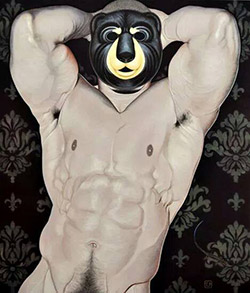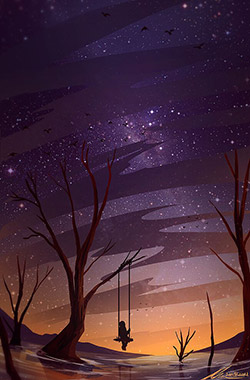When people think of a leader, the image that comes to mind is, more often than not, a dominant, assertive extrovert. In the West, extroversion has long been a coveted trait, and in workplaces you’ll find them being promoted more rapidly and getting better performance reviews.
That’s exasperated by media and a huge personal growth industry, which is constantly telling us that we can come out of ourselves. We can stop being introverts and we can be like everyone else and a real success.
We have preconceptions about what it is to be an introvert or an extrovert, and what skills it is that they bring to the table. We don’t mean to pigeonhole people, but we do, and an introverted Master (or shy Master) might seem like a contradiction in terms. In fact, we might even assume that introversion and shyness are submissive traits.
But, that’s not the case at all. In fact, they might have some unique qualities that make them even more effective Masters.
WHAT’S THE DIFFERENCE BETWEEN A SHY AND INTROVERTED MASTER?
In broad terms, somewhere between 16 and 50 percent of the population are not extroverts. They might be introverts, or they might be ambiverts, who switch between introversion and extroversion depending on the circumstances. Introversion and extroversion is more of a (contextual) sliding scale than a dichotomy. Shyness is a little harder to measure, because we’re all shy about something, but 40% to 45% of American adults consider themselves shy.
Many people see shyness and introversion as being the same thing, and this is complicated by the fact that shy people do tend to be introverted, so on the surface they do look similar.
But, shyness refers specifically to a fear of judgement of others and anxiety about social situations. Introversion is a preference or a motivation for environments that are less stimulating. An introvert choses to stay away from the limelight and not be an extrovert, but they can adapt if necessary. Introversion tends to be more voluntary. It’s about motivation and preference, it’s not anxiety based. That’s why you find introverts leaving a party earlier than extroverts, for example. It’s not that they are finding it hard to function at the party, just that they’ve had their fill of social energy and they’d prefer to go home, retreat and read a book alone.
For that reason, I’ll look at them separately, starting with shyness because I think that one is least understood.
WHAT MAKES A SHY MASTER TICK?
 Many shy people describe it as something like a “tin ear for social cues”. A sense that everyone else knows the rules but you somehow fail to grasp some invisible thread that holds social life together. Of course actually no-one knows the rules and everyone is making it up as they go along, but shy people can feel like they’re just not getting the same signals that everyone else is getting.
Many shy people describe it as something like a “tin ear for social cues”. A sense that everyone else knows the rules but you somehow fail to grasp some invisible thread that holds social life together. Of course actually no-one knows the rules and everyone is making it up as they go along, but shy people can feel like they’re just not getting the same signals that everyone else is getting.
You can be shy in very particular contexts and be bold in others. There’s often not really an explanation for why that’s the case.
There are multiple causes of shyness, including biological factors, and a myriad of ways that it can develop and manifest, so I won’t go into that aspect in this article. I do think it’s important to highlight that’s it’s not necessarily a negative trait though.
In America, shyness is sometimes seen as a disability, but in many other cultures, such as in Finland, Sweden or Japan, there are more positive connotations associated with shyness. Being shy is seen as being modest and self-effacing, and there’s value placed on silence, letting other people speak and being a good listener.
In the West, we tend to think of shyness as “shrinking away”, but it’s rarely about that at all. A more accurate way to look at it would be something like displacement, or sublimation. We are inherently social animals, and we can’t stop wanting to communicate with people. It’s often the case that shy people communicate in more creative or tangential ways, which explains why a lot of actors, musicians, writers and visual artists are shy. Shyness may even be an important motivation for a lot of art.
So, the idea that shyness is in some way a submissive emotion is really a total misunderstanding. Shyness stems from self consciousness, and our capacity as humans to make meaning. Introspection may not seem “dominant”, if you are thinking in terms of synonyms like pushy or overbearing, but if you think about qualities that might make up a “good Dominant”, self awareness, modesty and being a good listener are a few you might rate highly on your list.
THE INTROVERTED MASTER
For most people, introversion is a choice. They can function in an extroverted world, but their motivation and preference is for less social situations because they find energy there.
Linking it to psychology, there is a construct known as self regulation. Self regulation is the ability to manage our impressions by managing our behaviour or emotions. It’s not a false person or a character, it’s real, but it’s a managed (often exaggerated) personality. What introverts are doing is creating an extroverted façade when they need to, and this draws on those self regulatory resources. The problem with this is that these resources are not infinite. They get depleted. And if they are getting depleted it leaves the individual at risk of mental and emotional exhaustion.
So, this works well in short bursts. The difficulty is not in not being able to cope with a munch or event. But there is a danger that if an introverted Master needs to sustain prolonged periods of extroversion without being able to recharge that they will feel that as stress.
If you’re an extroverted sub/slave with an introverted Master, it’s also worth considering that there is a body of scientific research that is rapidly building that shows a difference in the way that the neurotransmitter dopamine is treated in the brain by introverts and extroverts. Dopamine is responsible for motivation for reward, which can include things such as career success, money and social status. While the amount of dopamine is the same, the activity of the dopamine reward network is greater in extroverts, which may be one of the reasons why they seek out novel situations and are more adventure seeking.
By recognising that your Master may not get the same buzz that you do from going to every community event and volunteering for every committee, you’re in an excellent position to incorporate that understanding into your relationship.
THE POWER OF THE ROLE
 Both shyness and introversion are very situational and very contextual and can often ebb and flow in strange ways.
Both shyness and introversion are very situational and very contextual and can often ebb and flow in strange ways.
Joe Moran, in his book Shrinking Violets: A Field Guide to Shyness, talks about how people in uniforms can often be emboldened to act out of character. If you’re a policeman putting on a uniform, or a doctor putting on a white coat, it is a role or a genre that you adopt and it’s something that’s not quite you. It’s a kind of persona that you can put on. In Germany they call it maskenfreiheit, which is the freedom conferred by wearing a mask. There is something about taking on what is very clearly a persona or a professional role that can be liberating.
Again, this is not “role” or “character” in a false or acting way. It is about focusing one aspect of the person, by perhaps sublimating other aspects.
If you think of many jobs, for example university lecturer, barista, policeman or butcher, work is a form of “performance”. It has a structure and a very particular genre to it. Most shy or introverted people find these situations relatively easy. It is the more socially ambiguous situations, where roles are not as clearly defined, that are more troublesome.
A shy or introverted Master is not likely to have any problem at all in that role in a one-on-one situation. At a social event however, depending on the situation, they may find “acting the Master” to be a kind of exaggerated version of themselves and find that to be draining for extended periods of time. A social event is an ambiguous space. Rules of engagement are unclear and as you talk to different people they vary, requiring constant reading and rereading of the situation and adjustment of behaviour.
SOCIAL MEDIA – BLESSING OR BANE?
 Technology can cut both ways. In the late 1990s, Dr Philip Zimbardo, leader of the notorious Stanford Prison Experiment and an expert in shyness, talked about fearing the arrival of a “new ice age” of communication.
Technology can cut both ways. In the late 1990s, Dr Philip Zimbardo, leader of the notorious Stanford Prison Experiment and an expert in shyness, talked about fearing the arrival of a “new ice age” of communication.
What he meant by that was that new technology emerging at that time, like email, the internet, ATMs and automated checkouts in supermarkets, would stop us having to communicate with each other, so it would enable shy people and that shyness would be reinforced.
As it turns out, that technology was soon followed by things like texting and social networking, which had a completely different effect because they are about (to use Facebook’s term) radical transparency.
Certainly, social media does help to create a level playing field, and you can hide behind the avatar and say whatever you want without having to actually physically engage with people. This may sound great for shy people, but it is a very mediated presence and many people would argue that it’s actually not you and that it’s not the same as face-to-face contact, which is something different.
It has made it harder to tell whether people are shy or not behind the screen. It can be an enabler, but it can also be a hiding place in a way that individuals can continue to engage without cultivating important social skills.
Everyone has their own journeys, but in general we tend to discover our preference for D/s and BDSM privately (or in an intimate one-on-one situation) and we might spend some time exploring what that means, through research and participation in online communities, before we launch ourselves into the local scene (if we ever do). Online presence allows the role of Master to sit comfortably for a shy or introverted person, but in joining the local community it becomes a role where they have to be extroverted to some extent.
ARE SHY AND INTROVERTED MASTERS AT A DISADVANTAGE?
Introversion might not be a choice, but introverted behaviour largely is for most people. An introverted Master is likely to feel far more stress from dealing with colleagues in his day job than he does at a BDSM community event.
Most shy people will tell you that it can be something of a burden, but by understanding what triggers your shyness and what doesn’t, you can weave through most situations that make you uncomfortable.
Most importantly, introverts and shy individuals bring a really unique and important set of qualities to the table. If the match between Master and slave/submissive is right, it can be a powerful combination. Wharton professor Adam Grant’s study of introvert and extrovert leaders at work found that when employees are proactive, introverted leaders are much more effective than extrovert leaders, because they don’t take the spotlight or push their own agenda, while extroverted leaders can do that.
It’s also wrong to think that introverted or shy Masters are only going to be skilled in our preconception of “introverted activities”, like solitary work. Introverts can often have unique contributions in typically extroverted tasks.
They might not be the flashiest, pushiest, loudest Masters at a munch, but introverted Masters and shy Masters tend to reflect more, they’re less risky in their decision making and they can also connect more deeply with others. Don’t be fooled by sparkle. Sometimes it’s the quiet ones you’ve got to look out for.
FURTHER READING
- PsyBlog – Are You Just Shy or Do You Have a Social Phobia?
- Psychology Today – Are Extroverts Happier Than Introverts?
- PsychCentral – All About Shyness
- Deviance & Desire – Dressing Up Isn’t Just For Children
- People – Psychologist Philip Zimbardo Leads Shy People Out of the World of Wallflowers
- Lifehack – 5 Reasons Why Introverts Make Great Business Leaders
- Lifehack – 7 Signs Quiet People Around You Are Not Shy But Introverted

One Comment Add yours